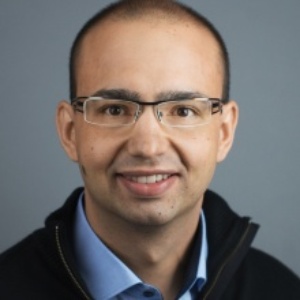| Time: | December 4, 2019, 4:00 p.m. (CET) |
|---|---|
| Universität Stuttgart, Campus Vaihingen, Pfaffenwaldring 7, Raum 7.01 | |
| Download as iCal: |
|
This time Prof. Dr. Blazej Grabowski from the Institute of Materials Science will talk about "High-accuracy finite-temperature first principles calculations accelerated by machine learning potentials"
Abstract:
Materials modeling from first principles has recently advanced to a new level. It has become possible to compute materials properties, such as e.g. phase stabilities, with an unprecedented accuracy up to the melting point and even beyond. In this talk, I will give an overview of our respective methodological developments and their applications. These developments combine efficient statistical sampling techniques with concepts from machine learning. They allow us an accurate investigation of highly complex systems including all relevant excitation mechanisms (electrons, fully anharmonic vibrations, magnetism, configurational entropy). I will discuss several applications that are of primary relevance to modern materials design, such as our work on dynamically unstable systems, liquid materials, chemically complex alloys (high entropy alloys), and magnetic materials. Our most recent achievement of calculating high-accuracy temperature-dependent phonon lifetimes will be presented as well. Finally, I will introduce the integrated-development-environment pyiron (www.pyiron.de) into which our developments are presently implemented.
Brief Bio:
Blazej Grabowski received his Diploma degree in physics from the University of Paderborn in 2005. Afterwards, he worked as a PhD student at the Max-Planck-Institut für Eisenforschung in Düsseldorf and received his PhD degree (Dr. rer. nat.) in 2009. He was awarded a scholarship by the excellence academy for young scientists (Nachwuchsakademie) sponsored by the German Research Foundation in 2010. From 2011 to 2012 he worked as a postdoc at the Lawrence Livermore National Lab, USA. From 2012 until 2019 he was head of the ‘Adaptive Structural Materials' group at the Max-Planck-Institut für Eisenforschung in Düsseldorf. In 2019, he became full professor and head of the department of Materials Design in the Institute of Materials Science at the University of Stuttgart. His research interests include finite temperature ab initio modeling, method development, machine learning potentials, diffusion in complex alloys, and study of rare events. He received an ERC Starting Grant in 2015.


